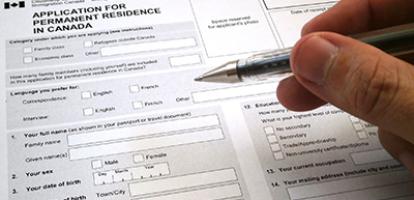Published in The Globe and Mail.
Canadian governments are loudly zealous about protecting us from potentially addictive stuff that could hurt our physical and mental health – think of junk food, booze and other drugs, or misinformation and other online “harms.” Yet they themselves are pushing fiscal junk. The federal government’s latest – a goods and services tax holiday from mid-December to mid-February, 2025, and a $250 handout to everyone with earned income under $150,000 – is yet another feel-good move that undermines our fiscal and economic health.
As with the Ontario government’s recent pledge of a $200 handout for its taxpayers, one big question is: Will the bribe buy the government a bounce in the polls? If the move works tactically – if they hook us on this junk – there’s trouble ahead for our tax system, government finances and economic growth, and even our democratic politics.
Taxes are a necessary evil. We need them to fund government programs. But taxes do harm – the obvious direct cost to people paying them and less obvious indirect costs, such as less reward from working, saving and investing, and distorted decisions about what and when we make, sell and buy. The best taxes raise the most revenue with the least harm – taxes with broad bases, low rates and predictable application, such as the federal GST and the harmonized sales tax that works alongside it in Ontario and the Atlantic provinces.
But populist pushers are poking holes in bases. The federal government’s exemption of home heating oil from the carbon tax was particularly egregious because the comprehensiveness of the carbon tax was a key legal as well as economic argument for the federal government levying it in the first place. The base for the GST/HST has been under constant pressure as well – and with every new exemption, the rates of these taxes, and on all other taxes governments need to fund their programs, will inevitably be higher than they would otherwise need to be.
Now the federal government proposes a temporary suspension of the GST on certain items over the holiday season. This boondoggle will change what people will buy and when, incentivizing them to minimize their tax burden rather than maximize their welfare, and imposing administrative and compliance costs that are a drag on our already struggling economy. And alcoholic beverages are on the list! In the bad old days, political parties offered free drinks at the polls. How is this any different?
The feds’ $250 handouts are no better. Like tax breaks on specific items and at specific times, they will need to be paid for – with higher taxes now, or with borrowing that brings higher taxes later, and with the discouragement of work, saving and investment that higher taxes inevitably create. Being so widely available so far up the income scale, the payouts do relatively little for the poor and will not even accomplish much redistribution. They are also crazy expensive – the total cost of the handouts and the two-month GST holiday will be one-quarter more than two months’ worth of Canada’s defence spending over that period.
Proponents of Ontario’s and Ottawa’s handouts need to tell us why, if the payouts are such good things, we should not double or triple them and finance the extra spending with higher personal income taxes. Most proponents would think that is silly – yet that is the path we are on.
Populist fiscal policy isn’t just about goodies. It is also about additional taxes aimed at unpopular groups or businesses, such as special levies on cars, boats and airplanes or banks and insurers. It is also about piling up huge debts for programs we want now while passing the bill forward. The common element is that populist policies appeal to the wrong part of our brains – instant gratification no matter the long-term cost. These latest tax doodles and handouts make more acute the question: Are the pushers of this stuff getting better at hooking us?
Maybe not. The exemption of home heating oil from the carbon tax caused too much resentment and controversy to rate as a political success. Deep down, Canadians still want their governments to tackle deep and persistent challenges such as stagnant productivity and wages, inadequate access to health care and unaffordable housing.
But like sugary snacks, drugs and online idiocy, junk fiscal policy can condition us to want more. If we vote for it, we will get it. Canadians need to break the cycle before the pushers of fiscal junk make the Canadian economy and Canadians sicker.
William Robson is president and chief executive of the C.D. Howe Institute. Don Drummond is the Stauffer-Dunning Fellow and an adjunct professor at the School of Policy Studies at Queen’s University, and fellow-in-residence at the institute.





